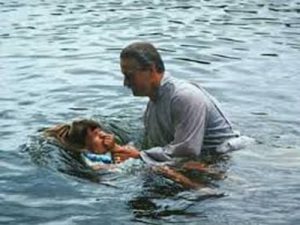THE SEED
Therefore if any man be in Christ, he is a new creature. 2 Corinthians 5:17
The real focus of the gospel of Jesus is redemption rather than renovation, regeneration rather than rehabilitation. Instead of patching up an old garment, we are given a brand-new one of righteousness by virtue of our belief in the substitutionary death of Jesus on the cross. The goal of this new creation and new creature enterprise is to find a new owner for the deeds
of our lives. Christ desires to enter your life’s boundaries, to claim possession of its physical location, and to possess the legal rights to it. He desires to enter. As believers, we all require that. The Christian must accept God’s perception of who the Christian is. Anyone who is born again is transformed into a brand-new person. This implies that his spirit is reborn into the heavenly kingdom, where anything is possible, including the impossibilities of mortals. If you accept Jesus Christ as Lord while you are unwell, God will regard you as healed. As a result, if you continue to affirm who God says you are, you will be made whole. Declare that you are rich and you will be rich because God sees you as rich even if you were poor. Confession results in possession in the kingdom of God. Viewing oneself in this way can help you to silence the enemy’s negative thoughts and accusations. Everything about you has changed, and you have
no memory of the past.
PRAYER
Renew a right spirit within me, oh Lord.
BIBLE READINGS: 2 Corinthians 5:1-17
DI ẸDA TÍTÚN
IRUGBIN NAA
Bi ẹnikẹni ba wà nínú Kristi ,o di ẹda títún: ohun àtijọ tí kọja lọ – 2 Kọrinti 5:17
Idojukọ ti ihinrere Jesu ni, irapada ti o ju atunse, isọdọtun tun ju imu padabọsipo. Dípò tí a ó fi pa ẹ̀wù ògbólógbòó kan mọ́lẹ̀, a fún wa ní ọ̀kan tuntun, ti òdodo nípa agbára ìgbàgbọ́ wa
nínú ikú ti Jesu lórí agbelebu. Ohun ti a fẹ mú jáde nípa ẹda tuntun yii ati ile-iṣẹ ẹda tuntun ni, lati wa eniyan tuntun fun awọn iṣe ti igbesi aye wa. Kristi fẹ lati wọ inú aala aye rẹ́, lati gba ipo ti ara, ati lati ni awọn ẹtọ, ti ofin, si awọn ààlà náà; nitori O fẹ lati wọle sínú ayé rẹ. Onigbagbọ nilati gba oju-imọ ti Ọlọrun nipa tani Onigbagbọ. Ẹnikẹ́ni tí a bá tún bí, jẹ́ ẹni tí a yí padà sí ènìyàn tuntun. Èyí fi hàn pé a tún ẹ̀mí rẹ̀ bí sínú ìjọba ọ̀run; níbi tí ohunkóhun ti lè ṣeé ṣe, títí kan àì le ṣeéṣe àwọn èèyàn. Ti o ba gba Jesu Kristi bi Oluwa, nigba ti o ba wa ni ai da ara. Ọlọ́run yóò kà ọ́ sí ẹni tí a mú láradá . Bi abajade, ba tẹsiwaju lati jẹrisi ẹniti Ọlọrun sọ pe iwọ jẹ, iwọ yoo di mimọ. Bi abajade, ti o ba tẹsiwaju lati jẹrisi ẹniti Ọlọrun sọ pe iwọ jẹ, iwọ yoo di mimọ. Sọ pe, o jẹ ọlọrọ, ati pe iwọ yoo jẹ ọlọrọ. Nitori Ọlọrun ri ọ bi ọlọrọ paapaa ti o ba jẹ talaka. Ìjẹ́wọ́ ń yọrí sí ní ni, nínú ìjọba Ọlọ́run. Wí wo araarẹ̀ lọ́nà yìí lè ràn ọ́ lọ́wọ́ láti pa àwọn ìrònú àti ẹ̀sùn òdì tí àwọn ọ̀tá ń lò rẹ. Ohun gbogbo nipa rẹ ti yi pada, iwọ ko si ni ranti awọn ohun ti o ti kọja.
ADURA
Da àyà títún sí inú mi Oluwa. Amin.
BIBELI KIKA: 2 Korinti 5: 1-17
